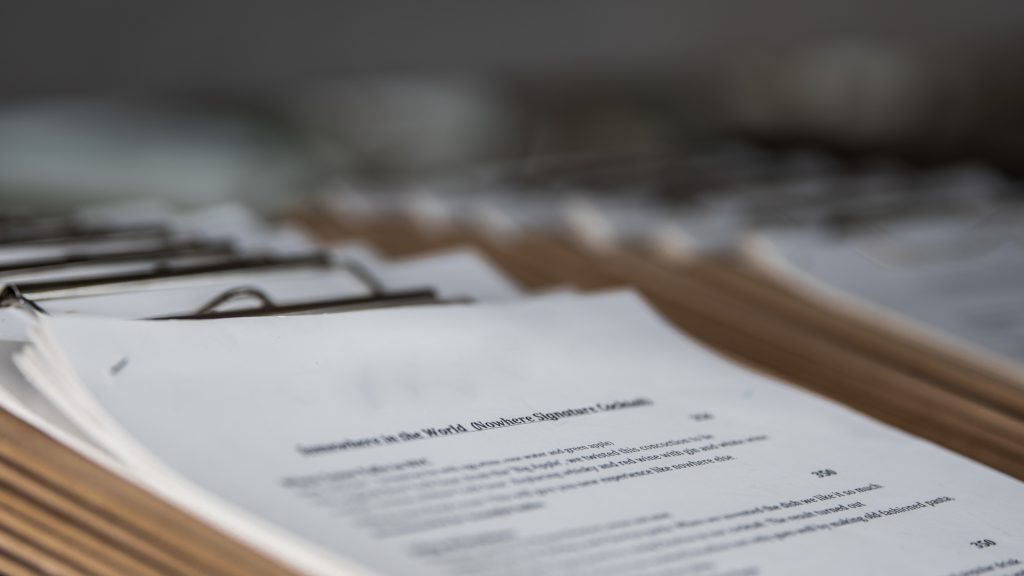
You know, asking for a reference letter can be a nerve-wracking experience – especially when you don’t have a close relationship with your professors or supervisors. Like a portfolio, reference letters are mandatory for most graduate program applications. Reference letters let your prospective schools or employers know who you are, and who can vouch for your abilities this adds more context to you as an applicant.
However, you can’t just ask for it point-blank, in some cases, these individuals will have dozens of requests for recommendations. This is why it’s important to be tactful and courteous when you make your request. Want to know how to maximize your chances of receiving a positive reference? Well, that’s what we are going to talk about today by sharing some tips that you can follow! Always remember to be polite and professional; avoid slang, acronyms, and emojis!
1. Be Proactive in Building Relationships
Start building relationships during your undergraduate career! Even if you aren’t applying for graduate school, these relationships are still beneficial for other things that might require letters like scholarships and job applications. The majority of unique opportunities come from just knowing somebody to somebody. It’s important to take opportunities in research, teaching assistantships, or drop in for office hours. These extracurriculars give professors or anyone that you interact with a reason to remember you.
However, it’s important to make genuine relationships with individuals. Be very vigilant in your demeanor or interactions, so you don’t come off as just using someone for your own benefit.

2. Create a Summary Document
It might be worthwhile when requesting a recommendation letter from a professor to include a summary document. This can include the grades you received, any past classes that you took with the professor, or notable papers or works. It seems excessive, but remember not all professors can remember every single student, so they may need a refresher by reviewing your work.
[Tip: Address your professor by their proper title. Avoid Mr. and Mrs. and use Dr. or Professor instead.]
3. Clearly Outline Programs, Schools, and State Deadlines
Like how one would cater a resume or cover letter, recommendations are the same. Make sure to clearly outline which programs and schools you are applying for. Be sure to include any links, a summary of the program, and the field when sending a request. Professors are able to tailor the letter to the program and your goals by understanding the context of your endeavors.

4. Attach a Professional Picture of Yourself
If it has been a long time since you graduated, or have a distant relationship with the professor you are asking for a reference, it’s common for professors to request a photo of the student they are vouching for. Prepare for this by making sure you have a professional headshot of yourself ready. Avoid selfies and poor lighting. Dress professionally and aim to have a clear appearance.
5. Give a Large Advance, and Follow Up as Needed.
As a rule, give at least two weeks notice at a minimum! The more time you give, the better. Professors will be busy towards the end of the semester with grading assignments and exams, and writing recommendations for other students. Don’t be that person asking last minute or else the professor will either deny or rush your request. This is why giving a large advance and follow-up as needed is much better!

6. Attach your Resume
In this portion, don’t be shy about highlighting any extracurricular and professional achievements in your resume. This is crucial if you are requesting a recommendation letter for a job posting. Specify which types of jobs you are applying for, so your professor can tailor their letter to your specifications. Not sure where to start on your resume? We have previous articles on ArchiHacks discussing some resume tips!
7. Remember to say Thank You
Once your professor writes the reference, make sure to follow up with a thank you note, and acknowledge the favor. This can be handwritten or an email!

Even if you have a great relationship with your professor or supervisor, it’s important to stay tactful and considerate. Your professor is busy, but ultimately, they are most often more than happy to help. Be proactive with your relationship building and keep yourself accountable for keeping deadlines.
Need help with your portfolio? Sign up for a 1:1 portfolio session with Bennett Oh through this link.
Well, that’s all we have for you today, and if you’ve made it this far, you deserve a cookie. I hope you found this article interesting and took something from it! Sharing is caring! We hope to provide you with valuable insights and share them with someone who might find this helpful. Make sure to follow our Youtube and Instagram accounts for more content!